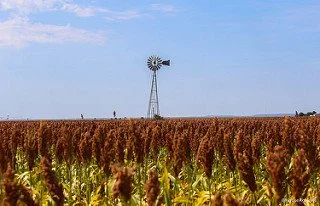What does Trump mean for EPA's Waters of the US Rule?
/During the presidential campaign, Donald Trump indicated he would gut the EPA and vastly reduce the number and scope of federal regulations. Now that Trump has been elected, what can we expect from his administration on the Waters of the US (WOTUS) rule?
The WOTUS rule expands the definition of "waters of the United States" to include many streams, ditches, ponds, wetlands, and areas "adjacent" to other traditional covered waters. Trump policy advisors have given interviews since the elections claiming the administration will put the WOTUS rule "on the chopping block." Trump's leader of the EPA transition, Myron Ebell, has not been shy expressing his distaste for the EPA. Ebell has criticized the US Supreme Court for its unwillingness to take up the American Farm Bureau's case against the EPA over Chesapeake Bay. Ebell is also a skeptic of climate change advocate for reduced environmental regulations across the board. If named the new head of the EPA, Ebell would likely move quickly to reduce the EPA's reach. Many agricultural leaders welcome Trump's condemnation of the EPA and the WOTUS rule. Ag leaders have criticized the broad WOTUS rule as a gross government overreach that would extend EPA jurisdiction to cover everything from farm ditches to normally dry streams.
U.S. Senator John Hoeven (R-ND) has proposed three different ways to scuttle the WOTUS rule:
- Congress could rescind the rule legislatively next year;
- the Administration could rescind the rule through the executive branch's rule-making authority; or
- the Sixth Circuit could strike down the rule.
Because Republicans will control the Senate, House, and Presidency, it is fair to assume any legislation reducing the size of the EPA or cutting back and reversing environmental legislation would stand a good chance of becoming law.
Environmental groups say it isn't that easy: rescission of a rule requires a full public hearing and process. Rescission, they claim, would require the same public process of comment that is required to pass a new rule. Briefing on the WOTUS rule is already underway in the Sixth Circuit case. Activists have promised to use all tools at their disposal to protect Obama's environmental program, including encouraging Democrats to filibuster, relying on non-governmental organizations, and utilizing new green technologies.
Trump's administration may make other changes to the EPA as well. His team has indicated they will be less aggressive in pursuing Clean Water Act violations. We can generally expect a Trump EPA to be smaller and less visible. Trump has said he prefers to leave such environmental regulation up to the individual states.
There is some evidence the current EPA head, Gina McCarthy, is pushing her agency full-steam ahead during these last two months of the Obama administration. Whether this is true or not remains to be seen, but various groups already have accused the EPA of rushing through the rule-making process for the WOTUS rule.
Despite the agricultural sector's embrace of Trump's view on the WOTUS rule and the EPA's authority, farm groups do not quite see eye-to-eye with Trump on other important agriculture topics. Farmers are concerned about Trump's campaign promises regarding immigration, the TPP, and the upcoming Farm Bill negotiations. Trump also has criticized the EPA's Clean Power Plan (CPP), which is Obama's attempt to discourage coal and encourage green energy. Ebell likely would push to scrap the CPP altogether.
Roughly 65 days until inauguration, folks. Buckle up!





